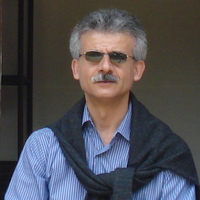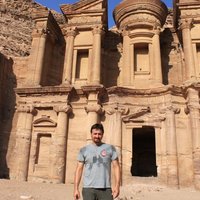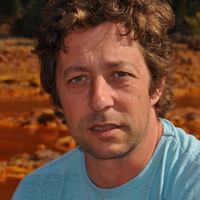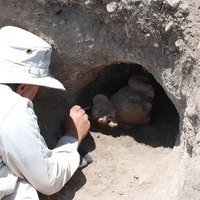Papers by Sjoerd Kluiving
EGS General Assembly Conference Abstracts, 2002
Seismic and lithological data correlate successfully with well-log data in a multidisciplinary st... more Seismic and lithological data correlate successfully with well-log data in a multidisciplinary study of a buried valley-system. High-resolution seismic data (onshore and offshore), VSP measurements, geophysical borehole data, as well as detailed lithofacies from airlift boreholes were acquired in the northern Netherlands near the island of Ameland. Possibilities of combining marine and land seismic data, and information from land boreholes
Very interesting paper that describes the heath managemen in the eastern part of The Netherlands ... more Very interesting paper that describes the heath managemen in the eastern part of The Netherlands during a large part of the Holocene. Good quality of palaeoeological analyses from four different regions illustrate the interplay between natural vegetation cover and soil processes with archaeological data, such as barrow systems. Care should be taken in describing the results in order to make a fine distinction be-C1
Crielaard, J. P., Kluiving, S., Charalambidou, X., Godefroy, L., Sheik, T. 2020. “What went into the Melting Pot? Land use, agriculture, and craft production as indicators for the contributions of Greek migrants and local inhabitants to the so-called Greek colonization in Italy (800-550 BC)”, Tij...
The international journal of environmental sustainability, 2022
Land, Apr 29, 2023
This article is an open access article distributed under the terms and conditions of the Creative... more This article is an open access article distributed under the terms and conditions of the Creative Commons Attribution (CC BY

The Holocene
The Holocene is defined by the impact of agricultural societies on their natural environments and... more The Holocene is defined by the impact of agricultural societies on their natural environments and resources, a paradigmatic shift triggered by the Agricultural Revolution. In Cantabrian Spain, the adoption of a sedentary economy (ca. 7000 cal yr BP) remains misunderstood, with contemporary Mesolithic and Neolithic sites apparently random dispersed. Energy Regimes, a time-independent and functional analysis of past societies, considers two cultures that cohabit and/or cooperate, based on their differential pattern of use of energy and resources, as well as on the variation in land-use strategies. We test and implement the framework of Energy Regimes through a targeted review, to examine the hunter-gatherer subsistence strategies in Cantabrian Spain. Archeological proxies such as demography, mobility, complexity of society, economy, and overexploitation of resources identified in 95 articles and books, allow us to apply Energy Regimes to reexamine transitions in hunter-gatherer societ...
Landscape Archaeology between Art and Science. From an Multi- to an Interdisciplinary Approach., 2012
Copernicus GmbH, May 6, 2016
Clues : Interdisciplinary studies in culture, history and heritage, 2021











Uploads
Papers by Sjoerd Kluiving
The primary aim of the conference is to make a contribution to the ongoing debate concerning the form and content of interdisciplinary research on human-environment dynamics in past societies from prehistory to Late Antiquity. The conference will be an arena for innovative ideas, integrated methods and lessons learnt from current interdisciplinary projects in the Peloponnese and beyond. In answer to the open call for more collaborative research efforts, the conference will host 17 lectures by members of the PELOPS group and invited speakers, presenting well integrated accounts of human-environment interactions in past societies.
The conference will open on Thursday, 6 April, 2017, 7 pm at the Acropolis museum, with a lecture by Michael GIVEN (University of Glasgow), ‘Conviviality of the land: towards a new academic ecology’, followed by a welcome reception at the Swedish Institute at Athens.
The conference will thereafter take place at the American School of Classical Studies at Athens, 7-8 April, 9 am-18 pm.